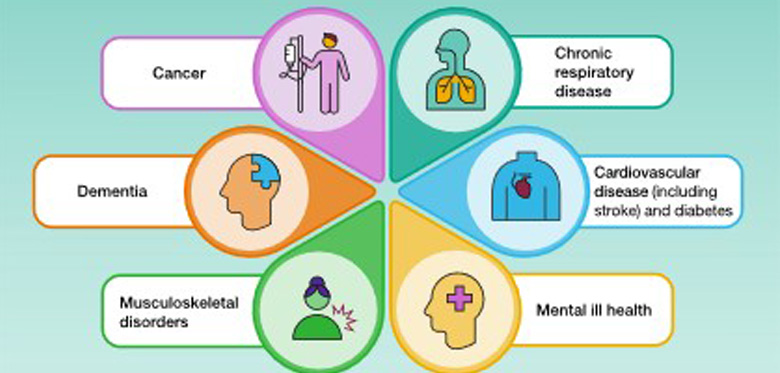I think everyone is aware that the NHS is under pressure and that some radical changes will be required to safeguard it for the future. A lot of people may not be aware that the government is planning to publish a major conditions strategy early this year to set out how they are going to improve and evolve the health service, with a view to improving outcomes over the next five years for people suffering from cancer, cardiovascular disease (including stroke and diabetes), musculoskeletal disorders, mental ill-health, dementia and respiratory diseases. These are the major conditions that the strategy will be focusing on.
The government has published an interim report which recognises that the current needs of the population have changed and are fundamentally different from when the NHS was first created in 1948. The report states that, ‘Central to this is the rising incidence of multimorbidity. One in four of us are now living with at least two health conditions, and that proportion is expected to rise over time’ and that, ‘The conditions we are focusing on together account for over 60% of ill health and early death in England’.
The framework of the strategy that the government is looking to implement is set out in this infographic:
A lot of the information and proposals within the interim report seem positive, but there are some areas of concern. There appears to be a focus on empowering people to look after their own health needs – by changing their lifestyles or carrying out tests/monitoring within their own home – to either prevent conditions developing or to effectively monitor them. We know from experience that people are only able to care for own their health needs within the correct social setting and with appropriate support. This is wider than the health system and requires improvements in housing, community care, employment, benefits etc.
The BMJ have also noted that, ‘Structures such as integrated care systems (ICSs) and primary care networks (PCNs), are already in place to facilitate a multimorbidity approach to the health service that provides care closer to home and communities, keeping people healthy, able to maintain employment, and enjoy time with loved ones. These structures don’t need radical change—they need to be sustained, through investment and support’.
It will also be noted that the major conditions strategy excludes some key conditions. One area, which is being dealt with separately, is acquired brain injuries (ABI). A separate ABI strategy is also due to be published early this year. This strategy’s aim is to improve access to rehabilitation for everyone with an ABI (which can include people suffering brain injuries following an accident/fall, strokes, tumours, haemorrhage, aneurysm or asphyxiation). Again, there have been concerns about the funding for this strategy.
It is often appropriate support and funding that is lacking from healthcare initiatives and it will be interesting to see what the final proposals are for both the major conditions strategy and ABI strategy.
If you or a loved one has suffered an injury due to the negligence of a medical or health professional then we may be able to help you pursue a claim for compensation. Our leading team of experts are on hand to offer advice, so please get in touch with us on 0161 696 6165 or complete our online enquiry form and we will contact you directly.





Comments